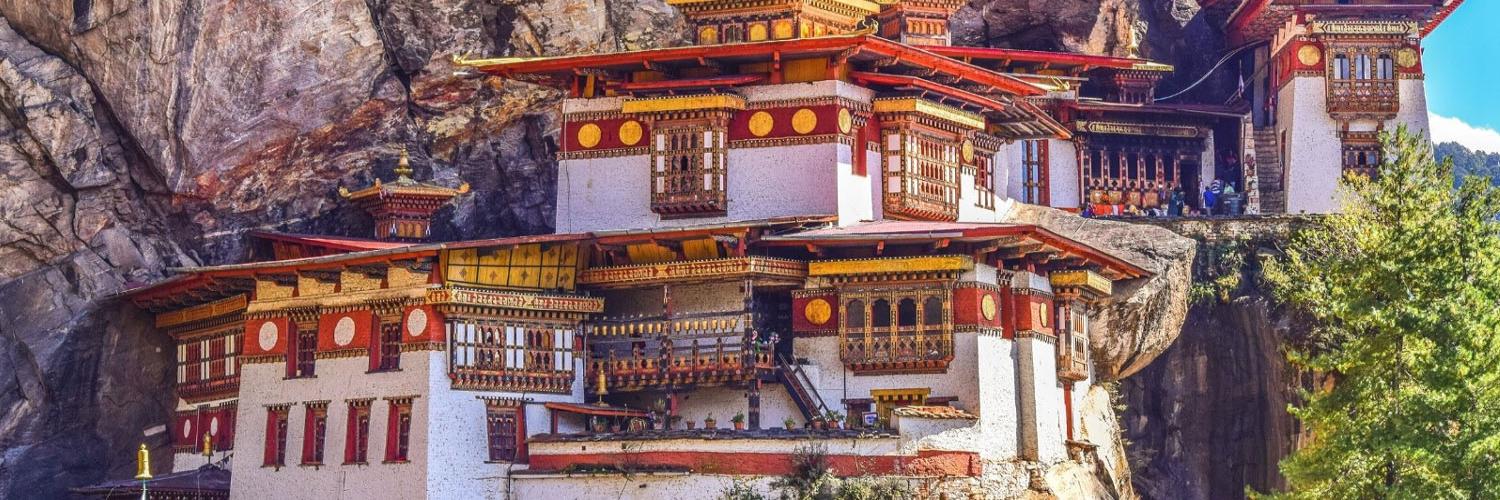1. What is the capital city of Bhutan?
Thimphu is the capital city of Bhutan, known for its unique blend of traditional and modern architecture, and home to the Tashichho Dzong, a fortress-monastery.
2. How is Bhutan's government system?
Bhutan has a parliamentary democracy with a constitutional monarchy. The King of Bhutan is the head of state, and the country's government is overseen by the Prime Minister.
3. What is the official religion of Bhutan?
The official religion of Bhutan is Vajrayana Buddhism, a form of Mahayana Buddhism. This religious tradition plays a significant role in the culture and daily life of the Bhutanese people.
4. What is the national dress of Bhutan?
Gho for men and the Kira for women are the national dresses. These traditional garments are worn for formal occasions and reflect the country's rich cultural heritage.
5. What is the Gross National Happiness ?
The Gross National Happiness is a measure developed by the government of Bhutan to assess the collective well-being and happiness of its citizens, focusing on factors such as psychological well-being, health, and education.
6. What is Bhutan’s currency?
The official currency of Bhutan is the Bhutanese Ngultrum, which is equivalent in value to the Indian Rupee.
7. What is the official language of Bhutan?
The official language of Bhutan is Dzongkha, however, English is also widely spoken and used in schools and government.
8. Is a visa required to visit Bhutan?
Yes, all tourists (except Indian, Bangladeshi, and Maldivian nationals) need a visa to visit Bhutan. Visas are processed through a licensed Bhutanese tour operator upon booking a tour package.
9. What is the best time to visit Bhutan?
The best times to visit Bhutan are during spring (March to May) and autumn (September to November) when the weather is mild and many cultural festivals take place.
10. How can I get to Bhutan?
You can reach Bhutan by air through Paro International Airport, which has flights from cities like Bangkok, Delhi, Kolkata, Kathmandu, and Singapore. Land entry is possible through border towns Phuentsholing, Gelephu, and Samdrup Jongkhar from India.
11. Is Bhutan safe for tourists?
Yes, Bhutan is generally very safe for tourists with low crime rates. However, it's always advisable to follow common travel safety precautions.
12. Are there any health concerns in Bhutan?
It's recommended to drink bottled water as tap water may not be safe. If you plan to trek or visit high-altitude areas, be aware of the risks of altitude sickness and take necessary precautions.
13. What is the local cuisine like?
Bhutanese cuisine is known for its spiciness, with chilies being a staple ingredient. Popular dishes include Ema Datshi (chilies and cheese), Phaksha Paa (pork with red chilies), and Momos (dumplings).
14. What kind of clothing should I pack?
Pack layers and warm clothing, especially if visiting higher altitudes. Clothing covering your arms and legs is recommended when visiting religious sites.
15. Do I need to book a tour to visit Bhutan?
Yes, independent travel is not allowed. You must book your trip through a licensed Bhutanese tour operator, which includes your visa, accommodation, transport, and a guide.
16. What are some must-see attractions in Bhutan?
Key attractions include Taktsang Monastery (Tiger's Nest) in Paro, Punakha Dzong, Tashichho Dzong in Thimphu, and the many festivals (Tshechus) featuring traditional dances and ceremonies.
17. Is internet available in Bhutan?
Internet is available in most urban areas and hotels, but the speed and connectivity may be limited, especially in remote regions.
18. Can I use my credit card in Bhutan?
Credit cards are accepted in major hotels and some shops in larger towns. However, it’s advisable to carry cash, especially when traveling to rural areas.
19. What is the national sport of Bhutan?
Archery is the national sport of Bhutan and is often played during festivals and special events.
20. Do I need travel insurance for Bhutan?
While not mandatory, it is highly recommended to have travel insurance that covers medical expenses, trip cancellations, and other potential issues.


